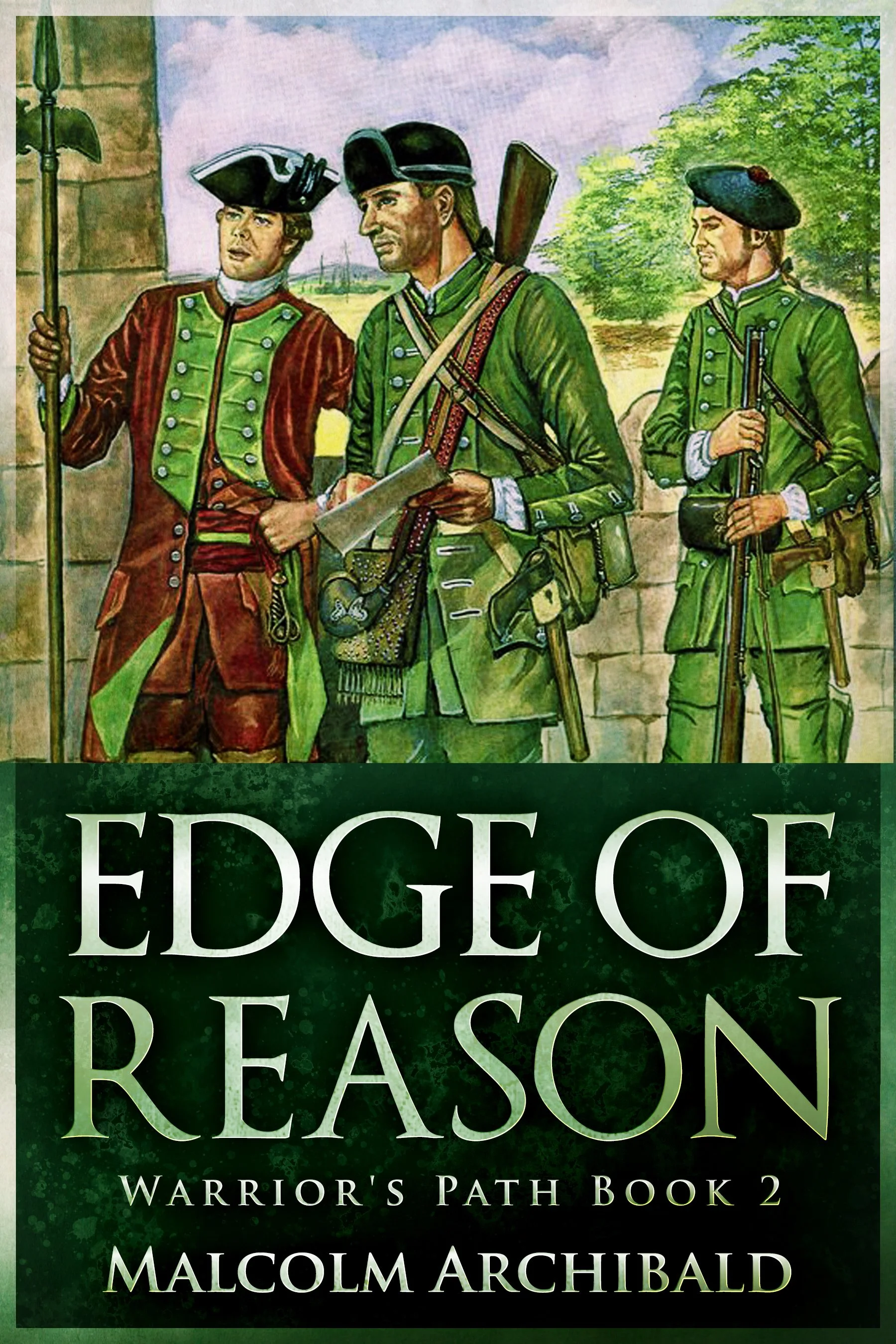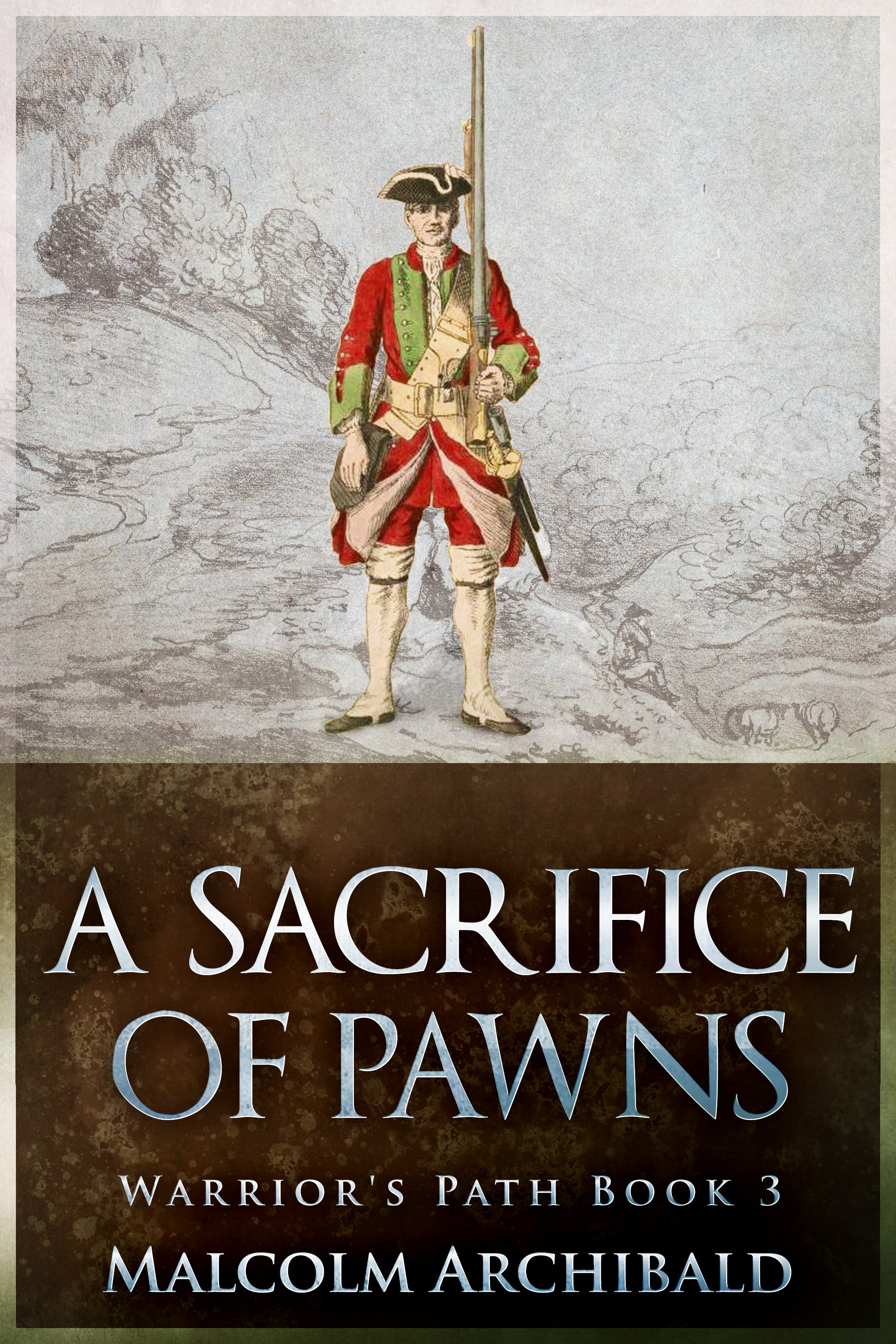Now I Am A Soldier (Tulloch at War Book 1)
Book summary
Set against the 1930s' tumultuous events, Douglas Tulloch's journey takes him from India's Northwest Frontier to WWII France. Malcolm Archibald's first in the 'Tulloch at War' series chronicles Tulloch's evolution from a cadet to a seasoned officer, facing tribal uprisings, espionage, and wartime moral dilemmas.
Excerpt from Now I Am A Soldier (Tulloch at War Book 1)
It was Private Brown who started the singing. Private Brown, who ran the gauntlet of Waziri fire in the Shahur Tangi defile on the Frontier and told bawdy jokes at the colonel’s expense. Now, when Tulloch looked across to him, he saw that Brown was dying. He lay behind the remnants of the farmhouse wall, a desperately wounded man within a shattered building.
“Oh, we’re no awa’ tae bide awa,’
And we’re no awa’ tae leave you.”
Brown sang softly through broken, swollen lips, spitting out blood with every word. One by one, the other members of Four Platoon of B Company joined in, some growling the words defiantly, others using the old familiar song to hide the fear that none would admit they possessed.
“We’re no awa tae bide awa.
We’ll aye come back tae see you.”
“Here they come again,” Tulloch said, checking his men. There were not many of them left, forty-five out of the original ninety-eight, with eight wounded. He felt his pride stirring as he looked over the survivors. They settled behind the ruined buildings, holding their Lee-Enfields in dirty, calloused hands as they faced their front. Tulloch counted his remaining cartridges and snapped shut his revolver.
“Aim low, lads, and don’t waste bullets.” He wondered how many British officers had said that to a beleaguered company over the centuries.
The dead lay before and among them, German in field grey and sinister black and Lothian Rifles in the new British khaki battledress. Beyond the dead, a line of sad trees concealed the massing enemy. The singing died away. A lone voice shouted, “Gin ye Daur!” - If you dare, a defiant challenge to the overwhelmingly strong enemy force that waited on the far side of the trees.
“Any fags, chum?” Private Aitken rolled over and asked Private Baxter, who absently passed over a Woodbine. Aitken lit up, shielding the match in his hand from long habit, and drew on the cigarette.
“I’d rather be on the terracing at Tynecastle,” Aitken said, releasing a long spume of smoke.
Baxter grunted. “You’re welcome, you Gorgie bastard. I’d rather be with Betty Grable.”
The shelling began again, German 37-millimetre artillery with its ferocious bark and vicious explosions. As often before, the German artillerymen were efficient, dropping their shells squarely on the British positions. The Lothian Rifles scrabbled into whatever cover they could, hugging fragments of wall and trying to burrow into the French earth. Or was it the Belgian earth? Tulloch was unsure if they had crossed the frontier or not, nor did he care as the shells landed like hail on an Edinburgh November, and the ground shook, trembled, and erupted under him.
Private Kelly died then. A red-headed, cheerful man from Bonnyrigg, one minute he was there, and then the shell landed, and he was gone, leaving no trace except a single leg and a muddy boot.
Private Lightfoot looked at the bloodied remains of Kelly, swore softly and looked away, covering his head with his hands.
“Hold on, boys!” Tulloch shouted hoarsely, then ducked as another salvo crashed down. Earth and stones clattered onto his steel helmet, with one sharp pebble opening a small cut on his cheekbone.
“Oh, we’re no awa’ tae bide awa’,
We’re no awa’ tae leave you,
We’re no awa’, tae bide awa’,
We’ll aye come back and see you.”
Brown bawled out the words, aware he was dying and desperate not to show fear. “Come on, you Nazi bastards! Come out and fight! Are you feared of the Lothian Rifles?” Raising his rifle, he fired at the distant trees, a gnat challenging an elephant, forty-odd ragged men facing the most powerful army in Europe.
The shelling ceased. Smoke slowly drifted away, leaving one more dead Rifleman and Private Baxter screaming with the right side of his chest blown away and half his lungs exposed. The cigarette dropped from his mouth to lie on the ground, slowly smoking.
“Stretcher-bearers!” Tulloch yelled, but Baxter mercifully died before they reached him. Baxter was an Edinburgh man from the Old Town, an ex-brewery worker who had joined the army when his employer dismissed him for drinking. Tulloch found him a model soldier, strictly sober, conscientious, and now dead.
Tulloch controlled his trembling and walked the length of the company’s defences as the dust settled. He heard the distant bark of a sniper’s rifle, ducked instinctively and saw the bullet strike a chip from the wall two inches from his hip.
If that had been a Pashtun, I’d be dead by now. He realised the men were watching him and straightened his back, trying to look nonchalant.
“We’ll aye come back tae see you!” Brown roared, firing, working the bolt of his Lee-Enfield and firing again. Tulloch let him continue, aware the action was futile. He wondered at the power of music as some of his men still sang despite the carnage. Another song entered Tulloch’s head; he remembered his platoon marching through the unforgiving mountains of Waziristan on India’s Northwest Frontier. He shook his head, remembering himself as a callow one-pip second lieutenant fresh from Sandhurst.
As an unhealthy hush fell over the Rifles’ defences, Tulloch relived another song that whispered down the years.
“I love a lassie, a bonnie Black Madrasi.”
Down the years? It was only four years ago, although it seemed a lifetime since he thought he knew it all, an officer keen to teach the other ranks how to soldier. He grinned ruefully, remembering how the officers in the mess and soldiers in the barracks exchanged glances, grunted, and waited for reality to bite.
“She’s as black as the coals in deepest hell.”
Tulloch had learned the hard way, step by bitter-experienced step.
“Sir!” Private Hogg, squat, flat-faced, and imperturbable, nodded to the sky. “Aircraft, sir, and I doubt they’ll be ours.”
Tulloch saw the tiny black dots rapidly approaching and knew that German aircraft would soon be pounding the Lothian’s positions, softening them before another assault.
“I love a lassie,
A bonnie black Madrasi.”
Tulloch shook the song from his mind.
“Down, lads!”
The Lothians were already tearing at the ground, trying to burrow even deeper holes for protection, pulling their steel helmets closer to their heads as the mind-tearing scream of the aircraft battered at their sanity and nerves. The Lothians had experienced Stuka attacks before and knew what to expect.
The aircraft arrived far too soon, descending into near-vertical dives one after the other immediately above the British positions. Each plane released a single bomb, with the Lothians covering their heads with their hands. One man screamed involuntarily while Brown and Sergeant Drysdale raised their rifles and fired at the attackers. Drysdale’s face was twisted with concentration, aiming each shot as he worked the bolt.
The explosions shook the defences, pulverising walls, tearing craters in the ground and, miraculously, causing no more casualties except headaches from the concussion. Tulloch coughed as the combination of smoke and dust caught his throat. He saw Sergeant Drysdale recharge his magazine and stand up, shake off the dust and stalk around the defences.
“They’re coming, sir!” Hogg sighted along the barrel of his rifle. “Here they come!”
Machine gun fire ripped from the trees, and then the Germans advanced in a series of short rushes, professional and deadly. They had already defeated Poland, Luxemburg, the Netherlands, and Belgium and had no doubts that this handful of British soldiers would either surrender or flee.
“Pick your targets,” Tulloch ordered. “Fire when you can.” Most of his men were veterans of the Northwest Frontier; they did not need his advice. He raised his chin as Kinloch started playing his pipes, the Lowland Pipes unique to the Lothian Rifles. The sound encouraged the men, and Hogg snarled “Gin ye daur,” the regimental motto as he narrowed his eyes and fixed an advancing soldier in his backsight.
Brown fired first, hitting a tall German sergeant and spinning him in a half circle. The Germans moved faster as Hogg and the other survivors aimed and fired, working the bolts of their Lee-Enfields with the precision of the professional soldiers most were. The Spandau fired again, far faster than the Bren that Innes aimed at the advancing Germans.
More of the attackers fell, some dead, others writhing and moaning on the ground.
“Fix bayonets,” Tulloch ordered and heard the metallic snick as the men fitted the long eighteen-inch sword bayonets to their rifles. For a moment, the weak sun glittered on the blades, making a bleak beauty out of the wickedly dangerous weapons, and then Tulloch looked forward. Bayonets were puny weapons when compared to the Panzers of the enemy.
A German officer shouted an order, and the attackers moved again, rushing towards the slender khaki line.
Tulloch checked his revolver was loose in its holster and lifted his rifle with another song ringing inside his head.
“Vivas Schola Edinensis,
Schola Regia venerabilis,”
The old well-remembered Latin phrases lifted inside Tulloch’s head, transporting him back to a time when his world was full of hope.
“This is no time to think of my old school song,” Tulloch told himself as the Germans advanced, yet the power of music transported him back to when his military career began and, before that, to his school days.

















Praesent id libero id metus varius consectetur ac eget diam. Nulla felis nunc, consequat laoreet lacus id.